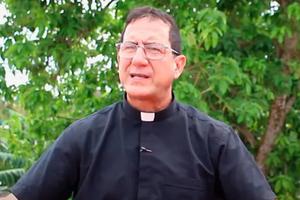Cuban Bishops Welcome Pardon of 3,500 Prisoners Before Pope Francis’ Visit
The prisoner release is the largest in Cuba since the communist revolution of 1959.

HAVANA, Cuba — The Cuban bishops’ conference stated on Friday they “received with profound satisfaction” the decision of the nation’s government to pardon 3,522 prisoners “as a humanitarian gesture on the occasion of the visit of Pope Francis to our country.”
Cuba’s state-run daily newspaper Granma reported on Sept. 11 that the government, “on the occasion of the visit of His Holiness, Pope Francis, and as also happened when the Supreme Pontiffs John Paul II and Benedict XVI visited us, agreed to pardon 3,522 prisoners, taking into account the nature of their actions for which they were sentenced, their behavior in prison, how much of their sentence they had served and health reasons.”
The Cuban bishops stated that each of their dioceses had received “numerous requests from prisoners or their relatives asking for the Church’s mediation in securing the prisoners’ release” and that these requests had been forwarded to government authorities.
Accordingly, “the news of the prisoner release is a cause for joy and provides spiritual relief for the prisoners themselves and their relatives, as well as for the Prison Ministry partners and the National Committee leadership.”
“This merciful action anticipates the fruits that the visit of Pope Francis, who comes as a Missionary of Mercy, will bear for the well-being of all our people,” the bishops’ statement concluded.
The Cuban government had indicated that those pardoned include those over 60; minors under 20 years old without a previous offense; the chronically ill; women; those due for release in 2016; and foreign prisoners, provided their home country guarantees their repatriation.
Those sentenced for murder, rape, the corruption of minors, drug trafficking, robbery with assault and crimes against state security — which is likely to exclude high-profile political prisoners — were excluded from the gesture of leniency.
The prisoner release is the largest in Cuba since the communist revolution of 1959.
Pope Francis will visit the island nation Sept. 19-22. He will travel to the cities of Havana, Holguin and Santiago de Cuba, saying Mass in each of them. In addition, he will meet with officials of the government and the Communist Party, as well as clergy and youth, and visit the Shrine of Our Lady of Charity of El Cobre. It is also likely that he will meet with the nation’s former president, Fidel Castro.
He has been notable to the Church in Cuba, particularly for his role in the country’s diplomatic rapprochement with the United States.
- Keywords:
- communism
- cuba
- fidel castro
- pope francis
- raul castro














